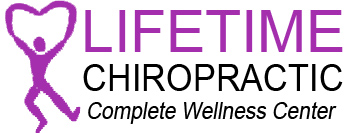
Scoliosis is a general term that is used to describe a progressive spinal curvature that can affect the entire skeletal system including the spine, ribs, and pelvis. Scoliosis is often divided into two categories: idiopathic and functional. Idiopathic scoliosis often involves changes in the development of spinal bones, where the normal development of a spinal vertebra should be more square the spine with idiopathic scoliosis may be trapezoidal (shorter on one side as compared to the other). In scoliosis patients with significant changes in bone structure it is impossible to correct this type of scoliosis. However, in this case management of the scoliosis is equally important. Functional scoliosis patients will show normal development of the bony structures of the spine and the orientation of the vertebra tends to be within the normal ranges of movement. This type of scoliosis responds extremely well the Chiropractic care and can often time achieve a full correction. Identification and diagnosis of scoliosis is imperative as it can affect virtually every system of the body.
Progressive scoliosis has traditionally been treated via surgical rods that fuse the spine. However, this does nothing to address the many biological and physiological aspects of scoliosis. In fact, invasive surgical procedures are typically only expected to arrest the scoliotic progression but often fail to achieve this minimum expected result.
There are many methodologies within chiropractic that are designed to assist the patient with scoliosis. Depending on the type and progression of the scoliosis the treatment results may vary from arresting spinal curvatures progression to fully correcting it. Similar to orthodontic braces for correcting the position of teeth, chiropractic methods will include exercises, stretching and in some cases traction to help restore the spine to a normal or as close to normal as possible alignment.
Chiropractic care is vital component to successfully treating scoliosis and is typically administered 2-3 times per week during the first 12 months of treatment. Thereafter, the frequency of chiropractic care is often reduced in accordance with the patient’s overall response.
Chiropractors work with the patient that has scoliosis to achieve improved health overall, while addressing the scoliosis rather than just treating the scoliosis. This multi-faceted approach has shown the greatest results in long term success in managing scoliosis. Be sure to discuss with your chiropractor the various methods which are available for improving scoliosis to find the method that will work best for you.
For Your Health,
Dr. Patrick Chenoweth
